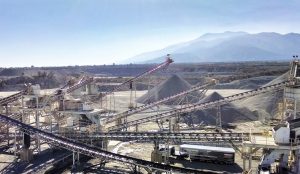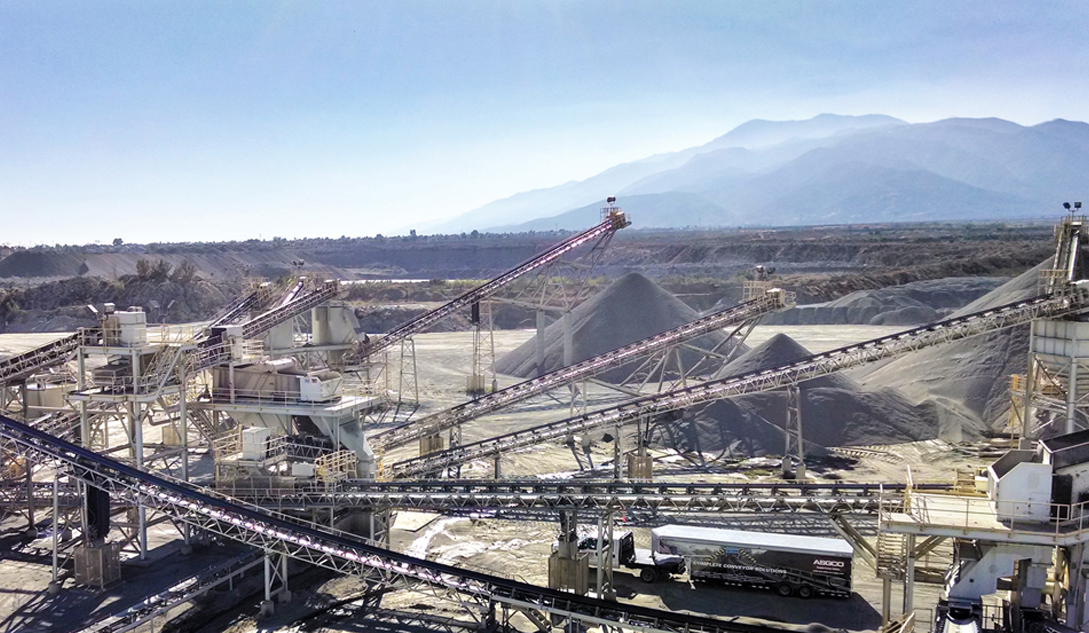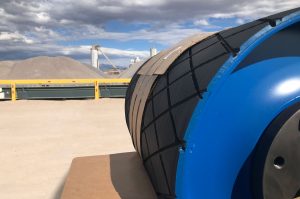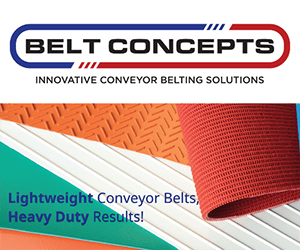
Compared to package conveyors, the design requirements of bulk conveying systems can present a whole new range of complex issues. To guarantee sucessful bulk material handling, it’s important to give ample consideration to the physical, chemical, and handling characteristics of the materials involved. These may include size, abrasiveness, flowability, weight, corrosiveness, and more.
If you need a reliable bulk conveying system for your manufacturing facility, read on to see why these systems can be so valuable and what considerations should be taken.
What Is a Bulk Conveying System?
A bulk conveying system is used to transport large quantities of products and materials through the manufacturing process. Warehouses and factories everywhere require bulk conveyor systems for the successful processing of goods.
Bulk conveying systems differ from typical package conveyors simply because they are required to move larger products. Bulk materials, including those that are large and heavy, need a more heavy-duty system to process these items down the conveyor line.
There are many benefits of bulk conveying systems, including:
- Minimizing manual labor
- Reducing risk of worker injury or strain
- Ensuring safe transport of goods and materials
- Maintaining conveyor safety standards and practices
- Protecting products from damage
- Saving facilities time and money
12 Questions to Ask When Designing a Bulk Conveying System
To ensure no details slip through the cracks during the design phase of your bulk conveying system, consider the following series of questions:
- What is the material?
- What is its weight per cubic foot?
- What is its temperature? Its percentage of moisture?
- What is the maximum size of hard lumps? What percentage of the material is lumped?
- What is the volume to be conveyed? (volume or weight per hour)
- What is the distance?
- Is it horizontal, inclined, or declined?
- How will the material be fed into the system?
- What are the duty requirements? (hours per day, stops and starts, etc.)
- What is the system feeding into?
- Any special requirements? (voltage, explosion proof, mountings, power sources, etc.)
- What other considerations need to be taken into account? (space requirements, environmental conditions, MFG preference, etc.)
Choosing the Best Conveying Equipment for the Job
Martin is a long-time IBT resource for both bucket and screw conveying equipment of bulk products. Their Idlers and Heavy-Duty Conveyor Pulleys are manufactured to deliver optimum performance and longevity in some of the most demanding industries, including cement and aggregate, sand and gravel quarries, coal mines, unit packaging, food processing, and recycling.
Martin’s Elite Series Pulleys are designed to meet today’s demanding applications by offering the following standard benefits:
- Profiled Integral End Plates: True-Turbine profile end plates that distribute stress more evenly, moving stress away from the hub and reducing the risk of failure
- Weldment: Submerged arc welding with machined-in preparation provides maximum weld penetration.
- Optimization: Stocked with MXT bushings but available for Keyless Locking Devices
You Can Count On IBT For All Your Conveying Needs!
With answers to the questions listed above, IBT and Martin can begin their work engineering your next bulk conveying system. Once the designs are complete, Martin builds it, ships it, and it is installed and started up with IBT’s assistance, at the customer’s request.
IBT Conveying Systems can work with you to completely solve your belt conveying needs. Our engineering staff is prepared to assist you with the right solution for your operations. We offer exceptional delivery times on stock and made-to-order products! Contact Jim Boatright, IBT Conveying Systems Manager, to learn more about our engineering capabilities, or give us a call at 913-677-3151 today!






